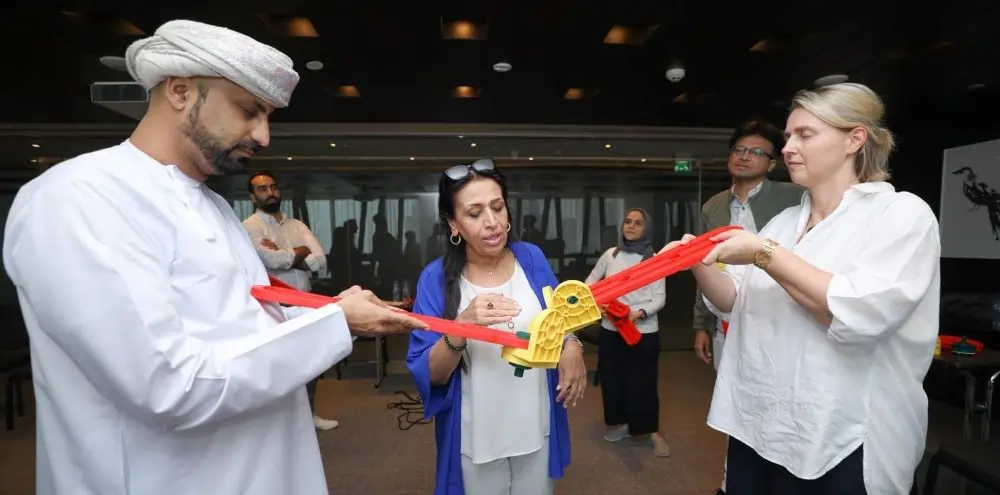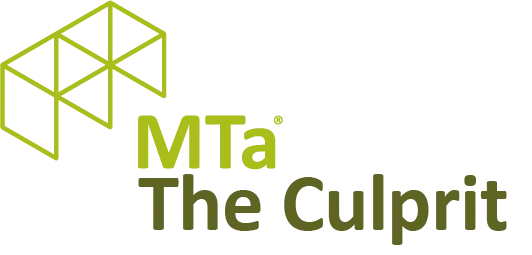Las mejores actividades experienciales para un lugar de trabajo con distanciamiento físico (social)

Publicado
10 June 2020
Un lugar de trabajo con distanciamiento físico o social no tiene por qué ser una barrera para el aprendizaje experiencial. De hecho, el distanciamiento físico es algo que, como facilitadores, debemos aceptar e incorporar en nuestros talleres.
A medida que las organizaciones vuelvan a ponerse en marcha, será fundamental que los equipos se reconstruyan y encuentren nuevas y eficaces formas de comunicarse y trabajar. Necesitarán establecer la “nueva normalidad” y explorar qué adaptaciones se requieren para trabajar de forma eficaz. Y deberán probar y perfeccionar dichas adaptaciones.
En MTa hemos revisado todas nuestras actividades y seleccionado aquellas que:
a) pueden realizarse manteniendo el distanciamiento físico, y
b) ayudarán y apoyarán a tus participantes a adaptarse y prosperar en la “nueva normalidad”.
Previendo un regreso gradual a la normalidad, o para entornos donde el uso de EPI sea habitual, también hemos señalado las actividades que pueden realizarse manteniendo la distancia física pero que requieren que los participantes compartan componentes.
En algunas actividades, la única adaptación necesaria es espaciar las sillas. En otras, puede ser necesario limitar el tamaño del equipo, y en otras, será preciso proporcionar a cada participante su propio conjunto de componentes. Si necesitas ayuda para decidir cuál es la actividad más adecuada para ti o aprender más sobre cómo adaptar una actividad específica, llámanos o envíanos un correo electrónico.
También estamos ocupados trasladando algunas de nuestras actividades al entorno online. The Culprit ya está disponible (contáctanos para más información) y habrá más muy pronto.
Actividades de MTa que pueden realizarse con distanciamiento físico
Temas Clave | Actividad | Kit | Descripción |
|---|---|---|---|
Precisión en la comunicación | Getting it Right | Accuracy in Communication | Precisión en la comunicación: el coste de los errores, la importancia de instrucciones claras y sin ambigüedades, y la comparación entre instrucciones verbales, pictóricas y escritas. |
Comunicación verbal precisa y eficiente | Blind Statues | MTa Insights | Los miembros del grupo deben crear estructuras sencillas que les permitan mover un objeto lo más lejos posible. La tarea implica una fase de planificación y otra de ejecución. |
Ángulos y geometría | Angles | MTa STEM | Los equipos combinan matemáticas y tecnología para calcular ángulos y construir estructuras que los contengan. |
Comunicación de conjunto | Back to Back | MTa Insights | Implica comunicación eficaz a dos niveles: dentro de la pareja y entre parejas. Para tener éxito, cada persona debe dar y recibir instrucciones claras, mientras que las parejas colaboran para producir un único producto. |
Aprovechar la diversidad del equipo | My Success | MTa Insights | Tres partes: en cada una, las personas trabajan en grupos para lograr la máxima puntuación individual construyendo torres. Las reglas de puntuación cambian en cada parte. |
Aprovechar el cambio | Words, Names & Numbers | MTa Coaching Skills | Taller experiencial completo para que los mandos intermedios desarrollen habilidades y actitudes que los conviertan en coaches eficaces. |
Orientación con brújula y geometría | Get Orientated | MTa STEM | Los equipos crean una estructura que apunte a puntos específicos de la brújula (el facilitador indica el norte). |
Desarrollar la confianza en el equipo | Everyone’s a Winner? | MTa Insights | Decisiones complejas en un entorno donde la estrategia del equipo debe ejecutarse trabajando junto a competidores, no compañeros. |
Comunicación eficaz entre miembros | Feet Of Clay | MTa PASS | Los participantes desarrollan y ejecutan una estrategia para pasar una canica lo más lejos posible. |
Trabajo en equipo eficaz | Group Necklace | MTa Insights | Equipos compiten para completar una tarea aparentemente simple, descubriendo que la planificación y la atención al detalle son clave. |
Establecer metas alcanzables | Leading Pairs | MTa Insights | Pairs desarrollan estrategias que deben ejecutarse trabajando junto a competidores, no compañeros. |
Resolución de problemas en equipo | Jigsaw | MTa Insights | Dos fases: preparación individual y trabajo conjunto para completar un rompecabezas. |
Dinámica de equipos | The Culprit | MTa Culprit | Ejercicio diseñado para que todos reciban y den feedback sobre estilos personales. |
Resolución de problemas en equipo | Colourful Necklace | MTa Insights | Crear un collar que rodee a todo el grupo requiere creatividad, planificación y control de calidad. |
Trabajo en equipo | Threading Needles Carefully | MTa PASS | Tarea sencilla que exige aplicar habilidades básicas de trabajo en equipo. |
Entender el éxito | Disc Roll | MTa Insights | Equipos compiten fijando y alcanzando objetivos, revisando planes para mejorar sus resultados. |
Actividades con distanciamiento físico pero con componentes compartidos
Temas Clave | Actividad | Kit | Descripción |
|---|---|---|---|
Generar confianza y relaciones | My Views | MTa Insights | Los participantes suman puntos realizando una tarea sencilla, revelando información personal a medida que avanza. |
Comunicación entre equipos remotos | Minefield | MTa Insights | Equipos a ambos lados de un campo de minas trabajan juntos sin cruzar al lado contrario. Los errores se penalizan. |
Foco en el resultado | Getting Ahead | MTa Insights | Equipos compiten vendiendo productos al facilitador, gestionando recursos limitados y necesidades diferentes. |
Innovación y cambio | Domino Theory | MTa Team KIT | Reto breve y divertido donde los equipos mejoran su rendimiento cuestionando suposiciones y considerando alternativas. |
Innovación, colaboración y cooperación | New Dimensions | MTa New Dimensions | Herramienta experiencial en tres fases para fomentar cooperación interequipos, comprensión personal y debate sobre temas clave. |
Liderar bajo presión | Leading the Team | MTa Insights | Líderes reciben tareas para su equipo y una tarea confidencial personal; las decisiones afectan la “remuneración” de todos. |
Gestión de equipos remotos | Led Jigsaw | MTa Insights | Primera fase individual, luego colaboración bajo la dirección de un líder para completar un rompecabezas con solución única. |
Mejora de procesos y Lean | KanDo Lean | MTa KanDo Lean | Actividad de mesa para comprender el procesamiento lean en oficina, fábrica o cadena de suministro. |
Éxito individual vs. éxito de equipo | Digital Display | MTa Team KIT | Cada persona tiene su tarea, pero el éxito individual puede obstaculizar el logro colectivo. |

Jamie Thompson
Head Facilitator and Managing Director at MTa Learning

